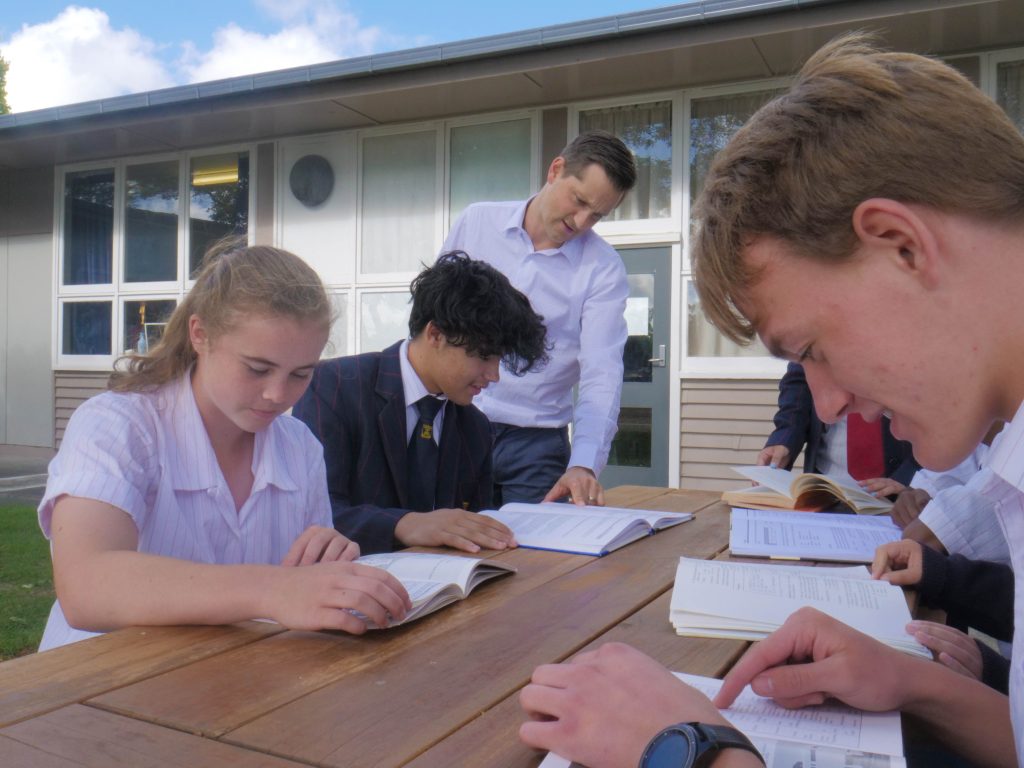
Marau Mātauranga
Curriculum
Our Structured Curriculum
Riccarton High School has designed a curriculum for the junior school (Years 9 and 10), which meets the requirements of the New Zealand Curriculum.
It allows all students to receive an education in the faculty areas of english, mathematics, science, social sciences, health and physical education, technology, arts, and languages.
Our curriculum is structured to provide students with a depth of experience in a broad range of subjects. As students progress into the senior school (from Year 11), the range of subjects that students are required to take reduces.
Riccarton High School aims to give every student the broadest possible range of opportunities to study the subjects they wish to take.
The school will make every effort to accommodate student choice but reserves the right to direct students into particular course selections where it deems that to be in the student’s interest.
Year 11
At Year 11, students are expected to take english and mathematics as well as four other courses. At this level students study for Level 1 of the National Certificate of Educational Achievement (NCEA).
Year 12
At Year 12, all students are required to take five subjects, mainly for Level 2 NCEA but also for other certificates on the National Qualifications Framework. High-achieving students can study six subjects. There are no compulsory subjects.
Year 13
At Year 13, students are required to take five subjects, mainly for Level 3 NCEA, which provides entry to university. There are no compulsory subjects. Some students select six subjects.
Student Assessment Procedures
The student assessment procedures handbook outlines student rights and responsibilities in how Riccarton High School manages assessment towards national qualifications such as the NCEA. It is an important document to refer to, especially if you are unsure of any assessment procedures or rules. As well as consulting the handbook, if you have any questions or issues regarding assessment regulations and rules, these should be raised with the subject teacher and/or whanau teacher in the first instance, or alternatively the relevant kaitiaki.
The student assessment handbook provides detailed information on the NCEA requirements, and student rights and responsibilities regarding assessment. Topics include NCEA criteria, endorsements, university entrance, scholarship, absences, due dates, internal moderation, the appeals process, prelim exams, financial assistance and more.

